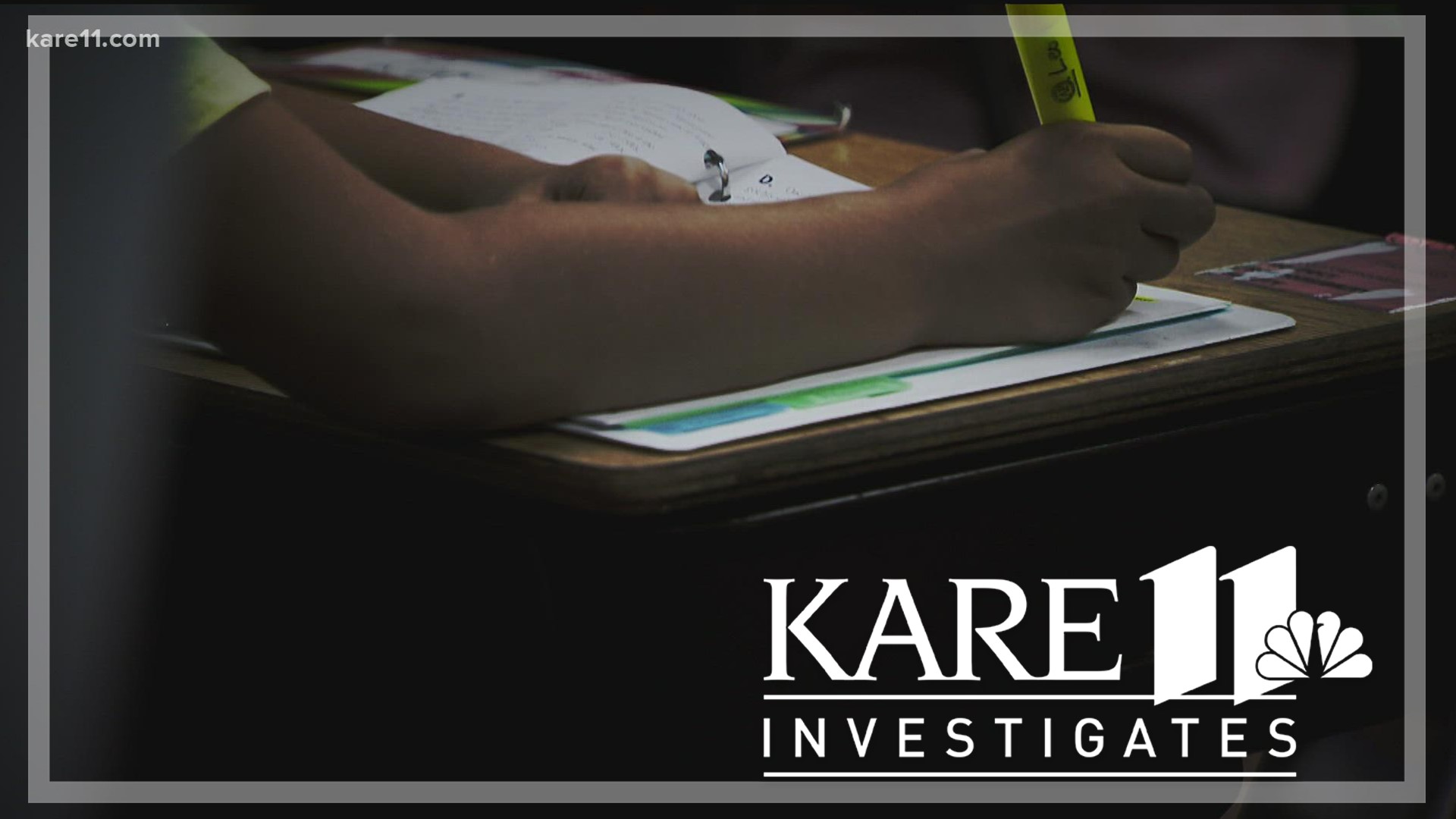As schools grappled with a COVID crisis, the federal government pumped billions of emergency relief funds into schools. In Minnesota, the Minneapolis and St. Paul public school districts were the biggest beneficiaries.
And yet, each district is facing a budget shortfall next year in the tens of millions of dollars.
A teachers strike in Minneapolis – and a narrowly averted one in St. Paul – have put a focus on school district finances.
“Minneapolis Public Schools cannot spend money it doesn’t have,” MPS Superintendent Ed Graff said in a YouTube video.
But what about the money it does have? KARE 11 Investigates crunched the numbers to find out what MPS and SPPS spent its COVID relief money on.
St. Paul Public Schools Superintendent Joe Gothard says the money was needed and appreciated as districts like his faced unprecedented challenges.
“We were doing things in our district that were far outside the norm and required significant costs both in materials and in employment salaries, making sure people were there to do those roles,” he told KARE 11.
Still, he says the COVID relief funds are not an answer to long-term needs or budget deficits.
“Once you use them, they’re gone,” he explained.
Gothard said the money won’t address ongoing yearly gaps from underfunded mandates involving special education and teaching English to students who speak other languages, two important jobs that cost his district more every year.
Plus, both Minneapolis and St. Paul are dealing with continued declining enrollment – meaning less money from the state.
“In our district every year we encounter the same costs, in fact rising costs because of inflation,” Gothard said.
Instead, he said the COVID money was targeted at building upgrades and helping students cope and catch up after two years of distance learning and disruptions.
American Rescue Plan Spending
Minneapolis Public Schools got $261 million dollars overall, but the biggest chunk of $159.4 million came last March from the American Rescue Plan (ARP).
Among the biggest expenditures so far:
- Nearly $75 million just to fill this year’s budget gap.
- $14 million on Air Filtration Systems and HEPA filter maintenance to guard against COVID
- Millions to summer school and related programming
- And $4.2 million for improving literacy
A full accounting can be found on MPS’ website:
St. Paul Public Schools took in $333 million total. They spent less closing their budget shortfall. Much of the ARP money is still unspent but is budgeted over the next two years.
- $23 million toward addressing reading and math gaps
- $42 million was spent on extra custodians and ventilation upgrades related to COVID
- And 22.8 million will be invested in Mental Health support and staff
St. Paul has more information at www.spps.org/arp
“We want to look at the investments that we’ve made specifically in reading, in mathematics and in our social emotional learning. We want to make sure students feel supported,” Gothard said.
RELATED: Can Minnesota's $9 billion budget surplus fund the demands of striking Minneapolis educators
Dr. Marguerite Roza, a national school finance expert from Georgetown University, has been tracking how districts use this unprecedented amount of unrestricted cash.
“It’s both an opportunity and a challenge because district leaders don’t want a year from now for their district to implode financially,” she said.
Because the money will run out at the end of 2024, she believes districts need to be wary of long-term investments like pay raises and new programs that will cost them after this money runs out.
Instead, she says the focus should be on student success – especially in reading and math.
She recommends short term contracts for staff or mental health workers to address pandemic-related declines.
“The research is becoming clearer each day that there are really significant impacts on their learning that must be remedied. And, if not, these students will have lasting and permanent effects on their lives,” Roza said. “This money must address that.”
“How should we judge whether or not our school districts spent it wisely?,” KARE 11 asked. “My opinion: We should judge it based on how the kids are doing and if the kids are making progress getting back on track,” Roza said.
Watch more KARE 11 Investigates:
Watch all of the latest stories from our award-winning investigative team in our special YouTube playlist:

